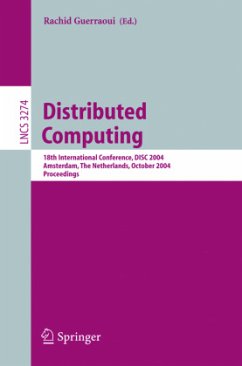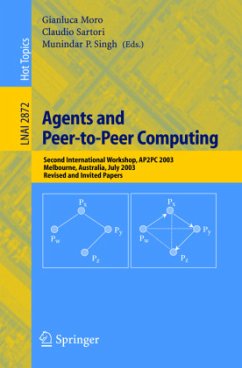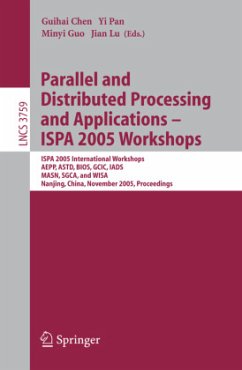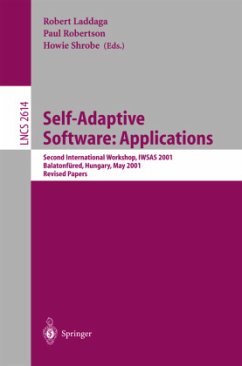
Self-star Properties in Complex Information Systems
Conceptual and Practical Foundations
Herausgegeben: Babaoglu, Ozalp; Jelasity, Mark; Montresor, Alberto

PAYBACK Punkte
20 °P sammeln!
Information systems can be complex due to numerous factors including scale, decentralization, heterogeneity, mobility, dynamism, bugs and failures. Depl- ing, operating and maintaining such systems can be not only very di?cult, but also very costly. A ?urry of recent activity has been directed at this pr- lem, and future information systems are envisioned as self-con?guring, se- organizing,self-managingandself-repairing.Collectively,wecalltheseproperties self- properties. This book is a spin-o? of a by-invitation-only Bertinoro workshop on se- propertiesincomplexsystemswhichwasheldinsummer2004...
Information systems can be complex due to numerous factors including scale, decentralization, heterogeneity, mobility, dynamism, bugs and failures. Depl- ing, operating and maintaining such systems can be not only very di?cult, but also very costly. A ?urry of recent activity has been directed at this pr- lem, and future information systems are envisioned as self-con?guring, se- organizing,self-managingandself-repairing.Collectively,wecalltheseproperties self- properties. This book is a spin-o? of a by-invitation-only Bertinoro workshop on se- propertiesincomplexsystemswhichwasheldinsummer2004inBertinoro,Italy. The Self-star workshop brought together researchers and practitioners from d- ferent disciplines and with di?erent backgrounds to discuss complex information systems.Thethemeoftheworkshopwastoidentifytheconceptualandpractical foundationsformodeling,analyzingandachievingself- propertiesindistributed and networked systems. Partly based on these discussions, we solicited papers from the workshop participants and a set of invitees for this book. We sought original contributions in which authors explicitly take a position concerningrequirements,usefulness,potentialandlimitations oftechnologies for self- properties of complex systems. This position needed to be founded on - search results that were put clearly in context with respect to the position sta- ment. We strongly encouraged visionary statements, thought-provoking ideas, and exploratory results that will help the reader form her or his own opinions on the importance of self- properties in current and future complex information systems.














